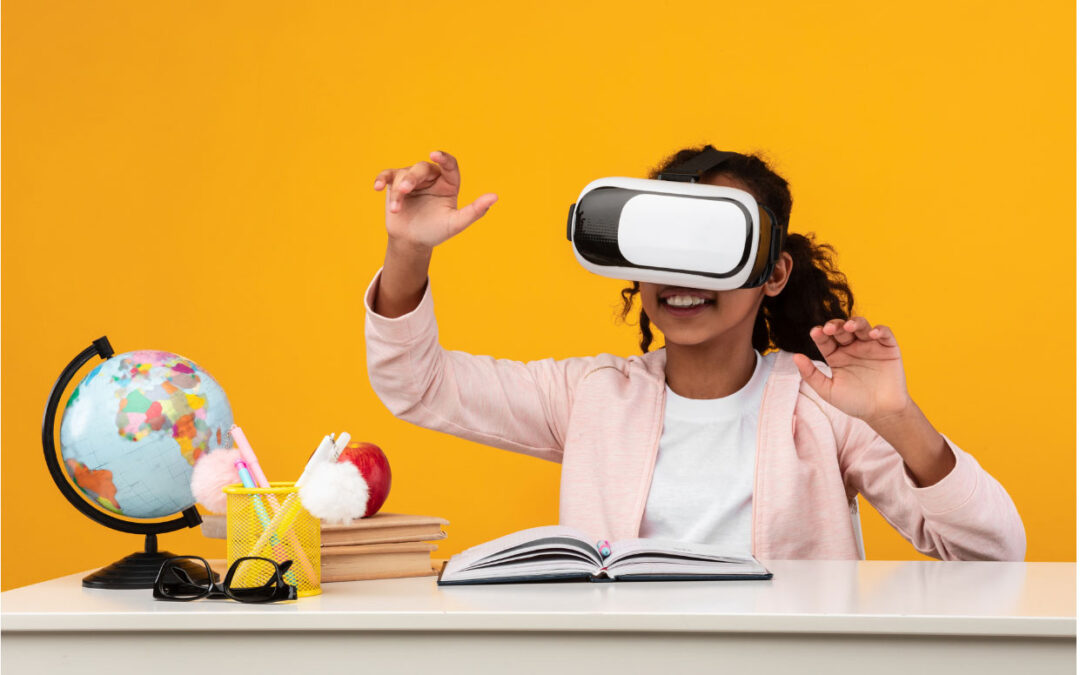As technology continues to advance, the landscape of education is rapidly evolving. One of the most exciting developments in recent years is the integration of Virtual Reality (VR) into the classroom. This innovative technology has the potential to revolutionize the way students learn, offering immersive and interactive experiences that can enhance traditional education methods. During the summer months, when the structure of regular schooling gives way to more flexible learning opportunities, VR can play a particularly transformative role. Let’s explore how Virtual Reality is shaping the future of summer education.
Immersive Learning Experiences
Virtual Reality has the unique ability to transport students to different places and times, offering immersive learning experiences that are both engaging and educational. Imagine a history lesson where students can walk through ancient Rome, a science class that takes place inside the human body, or a geography lesson that explores the depths of the ocean. These VR experiences make learning more vivid and memorable, helping students retain information better than through traditional methods.
Enhanced Engagement and Motivation
One of the biggest challenges of summer education is keeping students motivated and engaged. The informal nature of summer learning can sometimes lead to a lack of focus. However, the interactive nature of VR can capture students’ interest and maintain their enthusiasm for learning. By making education feel more like an adventure than a chore, VR can help combat the summer slide and keep students academically active.
Personalized Learning Paths
Virtual Reality allows for highly personalized learning experiences. Each student can progress through VR lessons at their own pace, focusing on areas where they need the most improvement. This individualized approach is especially beneficial during the summer, when students can take advantage of the extra time to catch up on subjects they may struggle with or delve deeper into areas of interest.
Practical Skill Development
VR is not just about theoretical knowledge; it also offers practical skill development opportunities. For instance, students can practice public speaking in a virtual auditorium, learn coding through interactive simulations, or even explore potential career paths through virtual job shadowing. These practical experiences are invaluable for developing real-world skills that will benefit students long after summer ends.
Access to Global Resources
With Virtual Reality, the world becomes the classroom. Students can virtually attend lectures from renowned universities, participate in international science fairs, or collaborate with peers from around the globe. This access to global resources enriches the learning experience and broadens students’ horizons, making summer education more diverse and comprehensive.
Safe and Controlled Learning Environment
Safety is a primary concern, especially during off-school months when students might not have constant supervision. VR provides a safe and controlled environment where students can explore, experiment, and learn without any physical risks. Parents can have peace of mind knowing their children are engaging in productive and safe educational activities.
Cost-Effective Solutions
While VR technology may seem like a significant investment, it can actually be a cost-effective solution in the long run. Traditional summer camps or educational trips can be expensive and logistically challenging. VR provides similar experiences without the associated costs, making high-quality education more accessible to a wider range of students.
Preparing for the Future
As we look ahead, it’s clear that technology will continue to play a crucial role in education. Familiarity with VR and other emerging technologies will prepare students for future academic and career opportunities. Integrating VR into summer education ensures that students are not only keeping up with current trends but also gaining skills that will be essential in the future.
Virtual Reality is more than just a technological novelty; it’s a powerful educational tool that can transform summer learning. By providing immersive, engaging, and personalized experiences, VR can help students make the most of their summer break, preventing the summer slide and fostering a lifelong love of learning.

